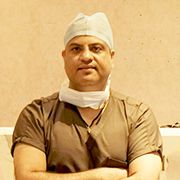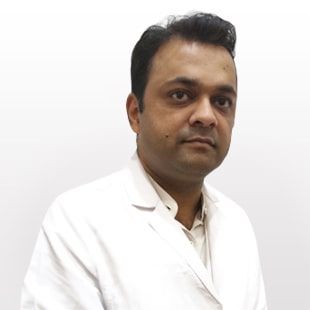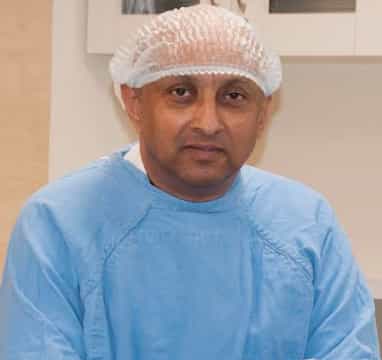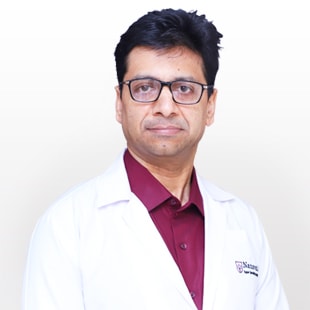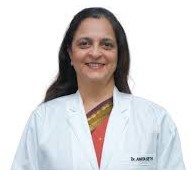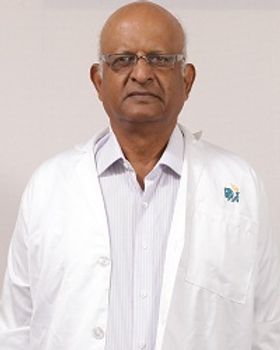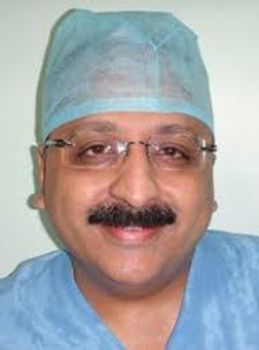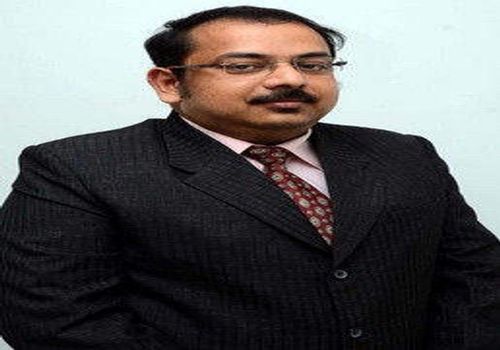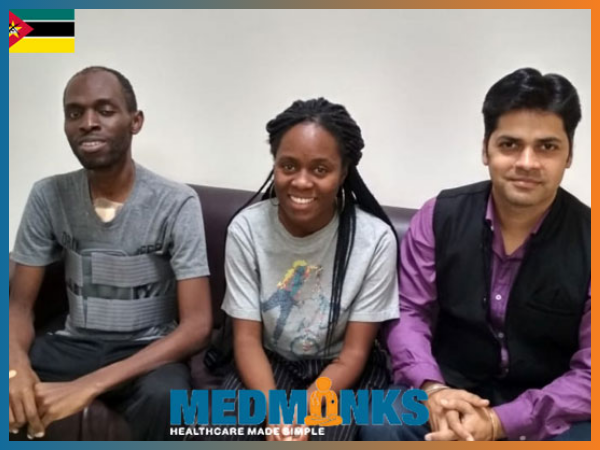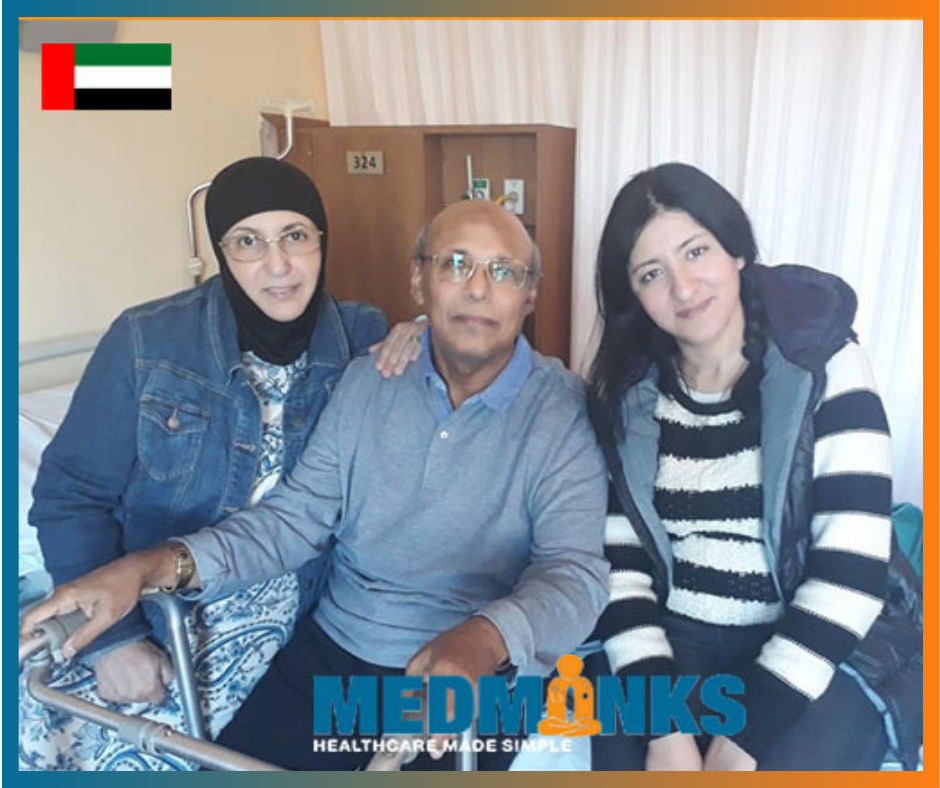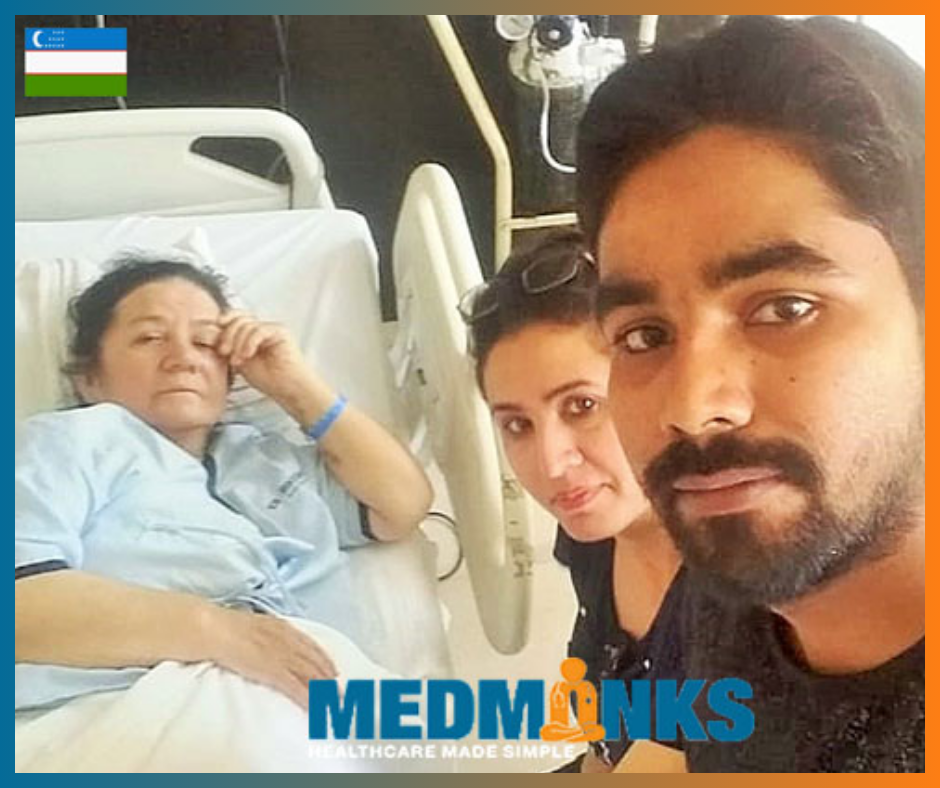Get Treatment from Dr Suraj Munjal, Best Eye Doctor in India. Contact Now Dr Suraj Munjal is the current HOD and senior consultant of Ophthalmology Department More..
Dr Vivek Garg is presently working as an Associate Consultant in Ophthalmology (Eye Department) of BLK Super Speciality Hospital, New Delhi. He has vast experi More..
Dr. Sudipto Pakrasi, at present, is practicing at Medanta The Medicity, Gurugram as a Chairman in Ophthalmology department. He has completed his MBBS from Maulana Az More..
Dr. Nikhil Sardar is a Ophthalmologist/ Eye Surgeon in Vileparle West, Mumbai and has an experience of 23 years in this field. Dr. Nikhil Sardar practices at Nanavat More..
Dr. Anita Sethi is a renowned Ophthalmologist with over 22 years of experience. She has been involved in establishing Ophthalmic Services at Nova Specialty Hospitals More..
Dr (Maj), V Raghavan’s hard work of around 4 decades, has rewarded him with Visishta Sewa Medal which was conferred upon him for his distinguished services, by t More..
Dr Anuraddha Rao is currently working as an ophthalmology consultant at KokilabenDhirubhai Ambani Hospital in Mumbai. Dr Anuraddha specializes in performing ca More..
Dr Ranjana Mithal is currently practicing at Indraprastha Apollo Hospitals in Delhi. Dr Ranjana Mithal’s expertise lies in providing services like the tr More..
Dr Ravindra Mohan E is a senior consultant of Ophthalmology Department at Gleneagles Global Hospital in Chennai. In his 3 decade career, he has been a part of More..
Dr Rudro is presently working as a consultant at Fortis Hospital Anandapur, Kolkata. Dr Rudro Prasad Ghosh has performed more than 4000 Phacoemulsification Surgeries More..

Don't know where to start?
- Speak to our in house doctor
- Get a response within 5 minutes
Description
Specialists who have undergone training to treat eye disorders including, cataract, Strabismus, Nystagmus, night blindness, colorblindness and more are categorized as eye surgeons. They specialize in performing surgery and prescribes eyeglasses or contact lenses to correct vision problems.
Apart from offering treatments, many eye surgeons are involved in carrying out research on the causes and cures for a variety of eye diseases or vision complications.
FAQ
1. How do I know who is the right eye doctor for me? Is the eye doctor board certified? In what field? – “How do I study a doctor’s profile”?
Finding the right eye doctor is important, however, considering a few factors prior to choosing one will help you make an informed decision. Here are the factors :
1. The eye specialists should hold specialization from a reputable healthcare association. Along with having educational qualifications MBBS, MD degrees, some doctors specialize in a specific area of medical or surgical care, and they are known as a subspecialist. Such doctors have undergone in-depth training of one or two years in one of the primary subspecialty areas including, retina, neurology, plastic surgery, glaucoma, cornea and much more. The ophthalmologist with one of these specializations give them training and knowledge to treat complex patient cases.
2. Next, make sure to consider the eye doctor's experience. You can assess the surgeon's quality through his or her experience. Having said that, the experience is not the only criteria to select an eye surgeon as there various other factors as well. Let us what they are:
a. Make sure to go through the reviews and patient testimonies to determine whether the chosen eye doctor is able to deal with cases of patients suffering from eye complexities of various severity.
b. Also, the eye doctor must have prior certification from the Medical Council of India (MCI).
Probe into career profiles, highlights and qualifications of the top-of-line eye surgeons in India on our website and pick the best.
2. What is the difference between an eye surgeon, optometrist and optician?
Eye surgeon or ophthalmologist is a medical or osteopathic doctor who has specialization in the eye and vision care and treats patients with eye disorders through surgery.
The optometrist is a healthcare professional who offers a multitude of services including, primary vision care, diagnosis, correction, treatment and vision management. They hold a license to perform eye screening exams and vision tests, recognizing few eye abnormalities, prescribing & administering corrective lenses, and medications for specific eye disorders.
Technicians who have undergone training to design, validate and fit eyeglasses or lenses to correct eye-sight are known as opticians. Opticians employ the prescriptions given by the eye surgeon or optometrists. However, they do not perform any test or write prescriptions for themselves.
2. What are the special interests/procedures that some of these doctors are performing?
Surgery performed on the eye of the patient with eye disorders including, age-related macular degeneration, corneal disease, glaucoma, cataracts, retinal conditions, and many other ophthalmologic disorders by an ophthalmologist or eye surgeon is called an eye surgery or ocular surgery.
Eye surgeries can be of several types that can include,
a. LASIK (Laser in-situ Keratomileusis):
In this surgery, the surgeon performs the surgery to reshape the underlying corneal tissue which in turn helps to focus light into the eye and fall on the retina. People suffering from nearsightedness, astigmatism or farsightedness are regarded as the ideal candidates for this surgery. This procedure calls for high precision.
b. PRK(Photorefractive keratectomy):
In this type of procedure, the surgeon employs a laser to bring cornea back its original shape. This procedure is quite different from LASIK as it only reshapes the surface of the cornea. Photorefractive keratectomy can treat common eye problems such as nearsightedness, farsightedness and astigmatism.
c. LASEK(laser epithelial keratomileusis):
In this procedure, the surgeon creates a flap where epithelial cells are loosened with the help of an alcohol solution. The LASER corrects the shape of the cornea. Along with that, it sets and secures the flap with a soft contact lens. Various eye problems such as nearsightedness, farsightedness, and astigmatism can be cured.
d. ALK (Automated Lamellar Keratoplasty):
Eye issues such as severe nearsightedness and farsightedness can be corrected by ALK. In this procedure, eye specialists make a flap in the cornea in an effort to evaluate the underlying tissue. In this method, the laser is not used. In fact, the operating eye doctor reshapes and correct vision of the patient by making an incision in the sub-layer of the cornea.
e. EpiLasik:
Quite similar to photorefractive keratectomy, EpiLasik is a surgery wherein the surgeon removes a thin layer of the cornea followed by reshaping it. The layer either be removed or replaced by the surgeon. This procedure is finished by inserting a soft contact lens to safeguard the area until it heals completely.
f. RLE (Refractive Lens Exchange):
In this procedure, the operating eye doctor eliminates the natural lens of the eye on the edge of the cornea by making a small incision. After the removal, the original lens is substituted with a silicone or plastic lens. refractive lens exchange is used to correct cataract, severe farsightedness or nearsightedness.
g. PRELEX (Presbyopic Lens Exchange):
Patients with presbyopia are treated with the help of PRELEX. In this procedure, the ophthalmologist uses specific implants, which is a particular type of multifocal lens, to enhance the focus and flexibility of the lens of the eye of the patient.
h. Intacs:
In this procedure, the doctor makes a small incision in the cornea of the patient. This method is also known as intracorneal ring segments (ICR). The surgeon places two crescent-shaped plastic rings on the outer edge of the cornea to flatten it. This method can treat near-sightedness.
i. Phakic Intraocular Lens Implants:
Phakic intraocular implants are used on patients who are too nearsighted both for PRK and LASIK. In this procedure, the operating surgeon places an implant through a tiny incision at the edge of the cornea that remains attached to the iris just behind the pupil.
j. AK (astigmatic keratotomy):
Astigmatism can be corrected without the help of a laser through astigmatic keratectomy. In this surgical procedure, the surgeon makes one or two incisions at the steepest part of the cornea that allows the cornea to relax and restore its shape.
To know more about the procedures, run your eyes through our blog.
3. On selecting the eye surgeon, how do we book the appointments? Can I video consult with him/her before arriving?
Once you have made the choice, our professionals will arrange an appointment. In case, you need to speak to a doctor or surgeon personally, and we can arrange a video consultation for you wherein the problems, concerns and the treatment plan can be discussed.
4. What happens during a typical eye surgeon consult?
During your first visit, you can expect the following:
1. First, the eye doctor will carry out a detailed evaluation that takes one and a half hours approximately.
2. Expect a longer visit if you are detected suffering from severe eye disorders of various types.
3. You should take the records of previously held surgeries if any with you as the doctor might need it.
4. The doctor will go through your medical history.
5. Next, the eye doctor will test your visual acuity by asking you to read letters from a standardized eye chart. Your every eye will be tested on an individual basis. This will help them determine your best vision from distance and near.
6. The doctor will use refraction to check whether you need glasses or not. Also, it will help in determining the best focus of your eyes. In addition, this test will help in determining whether you have astigmatism or not.
7. Along with that, the coordination of your eye muscle will be assessed in order to check whether they are functioning properly or not.
8. The eye doctor will examine the pupil response of your eyes. This will help in assessing if the light is being transmitted to the brain in the proper amount.
9. The eye doctor will check the peripheral vision. This will help to check the presence of diseases like glaucoma and strokes.
10. The eye doctor may also perform a slit lamp microscope examination to evaluate the health of the eye's anterior segment, which includes your cornea as well.
11. The ophthalmologist will check the intraocular pressure. Also, he or she will conduct a dilated eye exam. This exam will help the doctor to have a closer look at the inner and outer parts of the eyes. Also, it will help in checking the health of the lens, retina and optic nerve.
12. Other screening tests such as photography, ophthalmic ultrasound, high-resolution scans of the back of the eye, visual field testing, and pachymetry know the corneal thickness will be conducted.
When the evaluations end, the concerned eye doctor will discuss each and every detail with you and will create a treatment plan finally.
5. If I do not like the opinion given by the doctor, can I get a second opinion?
In case, you find your first opinion unsatisfactory or incomplete, and you can always seek a second opinion. Professionals working with Medmonks will help you get the second opinion from the respective doctor without any hassles at all.
6. How do I stay in touch with my doctor after the surgery (follow-up care)?
Just like any other surgery, eye surgery also requires good follow-up cure to ensure faster recovery. We will help you get in touch with the doctor either via telephone or video call. You can share your concerns or put your queries forward regarding post-operation care.
7. How does the cost of consulting and getting treatment from an eye surgeon varies?
The overall costs of the eye surgical treatment pivot on a variety of factors including,
• The type of procedure employed- Every procedure has a different cost. Depending on which procedure is used, the cost will vary.
• Your age and health condition- Your age and health condition will determine which procedure will suit and hence the cost differs.
• The occurrence of complications during or after the surgery if any- The rise of complications after the surgery will decide your hospital stay and whether you will need additional medications or not.
• Choice of the surgeon- The fee charged by the team of operating doctors responsible for contributing to the overall costs of the treatment.
• The type of hospital you opt for- The cost of treatment in facilities located in metropolitan cities is comparatively higher than those in other areas. Hence, your choice of hospital will determine your overall treatment cost.
• Type of room chosen- The type of room selected by the patient whether Standard single room, deluxe room, super deluxe room for the number of nights specified (this includes additional charges such as the cost of the room, nursing fee, cost of meals, and room service) can alter the final costs greatly. Make sure you choose the room that meets your budget requirements.
• Medications prescribed, before, during and after the surgery: The cost of the medicines prescribed by the surgeon or the doctor should also be included.
• Standard test and diagnostic procedures used- Any surgeon advises the patient to undergo a set of diagnostic and screening procedures as mentioned above to evaluate the condition closely. The cost of each of the method is different which should be taken into account to evaluate the final figure.
• Hospital stay: Hospital stay is the major contributing factor of the treatment you have undergone. When complications arise, you will be asked to remain under supervision for a longer period of time. This will increase the cost further.
9. Where can patients find the best eye surgery hospitals in India?
India enjoys the privilege of having some of the best eye surgery facilities or hospitals that provide affordable eye treatments to patients worldwide. Such hospitals are present in each and every part of the country, however, we will advise you to pick the eye care units located in metropolitan cities such as Delhi, Pune, Mumbai, Bengaluru, and Chennai. These healthcare units not only have world-class infrastructure and access to supreme-quality medical instruments, but these hospitals are manned by best surgical minds who perform surgeries at affordable costs.
For more insight, visit our website now!
10. Why select Medmonks?
When there are so many medical travel companies, then why choose MedMonks is a question that can arise in your mind.
Choose Medmonks because it is an experienced team that understands the difficulties faced by International and local patients both in their own country. While in some countries, proper facilities are not available, in some the cost of the treatment is way too high. With our assistance, you can contact the best doctor such as eye surgeon, get an appointment and go ahead with the treatment right away. You can go through the list of the doctors and hospitals that specialize in offering eye treatments at a fraction of the cost.
We have assisted millions of patients from all over the world to pursue medical treatments from the top notch surgeons or doctors in India till now. The hassles faced by the patients gets completely eliminated when they consult Medmonks. This has earned us a robust reputation as one of the most sought-after medical destinations of the world. We promise best prices, free on ground services such as helping patients to get a visa, flight tickets, accommodation and hospital appointments, free translation services to remove the language barrier if any, and free follow-up care to patients, local and International both.
Plan a medical journey with us now!

